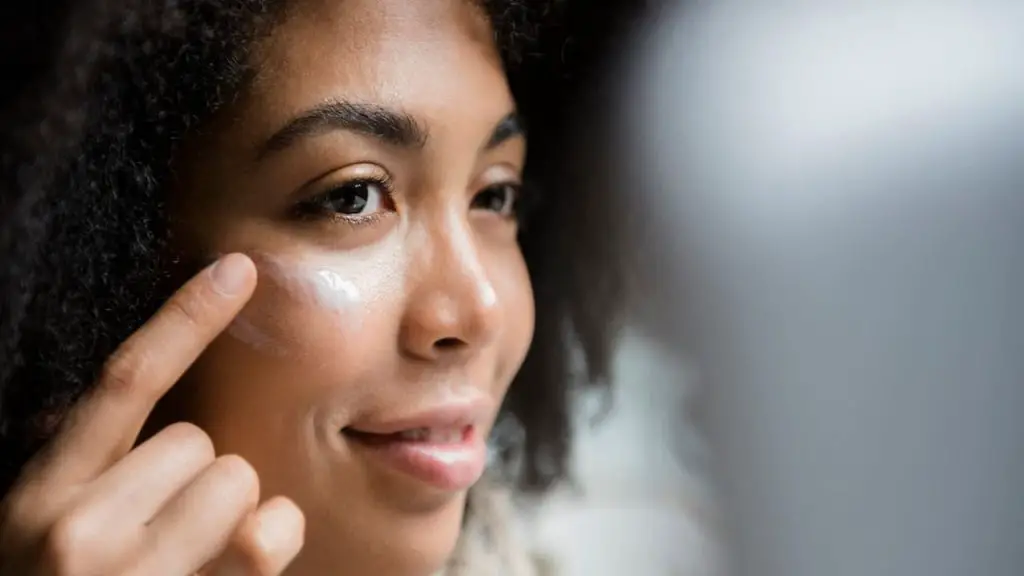We all know that we need to wear sunscreen to protect our skin from the harmful effects of the sun, but have you ever wondered what would happen if you didn’t? Would it really be that bad?
Sunscreen has become a staple in our daily routine, especially during the summer months. With the rise in skin cancer cases and the damaging effects of UV rays, it’s no wonder we’re all encouraged to wear it.
However, not everyone is convinced of its importance or may forget to apply it altogether. The truth is, skipping sunscreen can have serious consequences for your skin.
Whether you’re at the beach, pool, or simply running errands, exposure to the sun’s rays can lead to sunburn, premature aging, and even skin cancer.
In this article, we’ll explore the potential risks and consequences of not wearing sunscreen, and why it’s crucial to make it a part of your daily routine.
What Is A Sunscreen?
Sunscreen is a type of lotion, spray, or cream that is applied to the skin to protect it from the harmful effects of the sun. Sunscreens work by absorbing or reflecting the UV (ultraviolet) rays from the sun, which can cause sunburn, premature aging, and skin cancer.
The main active ingredients in sunscreens are either chemical or mineral-based, and they come in different SPF (sun protection factor) levels.
It is recommended to apply sunscreen at least 15-30 minutes before sun exposure and to reapply every 2 hours or after swimming or sweating. Wearing sunscreen is an important part of protecting your skin from the damaging effects of the sun.
Importance of sunscreen

Protection from UV rays
Sunscreen is essential for protecting your skin from harmful UV rays. UV rays can cause skin damage, premature aging, and even skin cancer. Sunscreen helps to block these rays and prevent damage to your skin.
Prevents sunburn
Sunburn is a painful and uncomfortable experience that can be easily prevented with the use of sunscreen. Sunscreen helps to prevent the skin from burning and becoming red and painful.
Maintains skin health
Sunscreen helps to maintain the health of your skin by preventing damage from UV rays. It can also help to prevent the development of fine lines, wrinkles, and other signs of aging.
Suitable for all skin types
Sunscreen is suitable for all skin types, including sensitive skin. There are many different types of sunscreen available, including mineral-based and chemical-based options, so you can find one that works for your skin type.
Easy to use
Sunscreen is easy to use and can be incorporated into your daily skincare routine. Simply apply it to your skin before going outside, and reapply as needed throughout the day.
Provides long-lasting protection
Sunscreen provides long-lasting protection against the sun’s harmful UV rays. This means that you can enjoy outdoor activities without worrying about damaging your skin.
Helps to prevent skin cancer
Skin cancer is a serious health concern that can be prevented with the use of sunscreen. Regular use of sunscreen can help to prevent the development of skin cancer, making it an essential part of your daily skincare routine.
What happens if you don’t wear sunscreen?
Sunburn
The most immediate and obvious consequence of not wearing sunscreen is sunburn. Sunburn occurs when your skin is exposed to UV radiation for an extended period of time, causing redness, pain, and peeling.
Skin aging
UV radiation can cause premature aging of the skin, including wrinkles, fine lines, and age spots. This occurs due to the breakdown of collagen and elastin in the skin, which is responsible for keeping it firm and elastic.
Skin cancer
Prolonged exposure to UV radiation is a major risk factor for skin cancer, which is the most common type of cancer in the United States.
The two most common types of skin cancer, basal cell carcinoma, and squamous cell carcinoma, are caused by UV radiation.
Eye damage
UV radiation can also damage your eyes, leading to cataracts, macular degeneration, and other eye conditions. This is why it is important to wear sunglasses that block UV radiation.
Weakened immune system
Excessive sun exposure can weaken your immune system, making you more susceptible to infections and illnesses. This is because UV radiation can suppress the activity of certain immune cells.
Heat stroke
If you spend too much time in the sun without protection, you may develop heat stroke, which is a serious condition that can be life-threatening.
Symptoms of heat stroke include high body temperature, confusion, and loss of consciousness.
Increased risk of other health problems
In addition to the above consequences, not wearing sunscreen can also increase your risk of other health problems, such as heat exhaustion, dehydration, and heat cramps. It can also exacerbate existing conditions, such as rosacea and lupus.
How to choose the right sunscreen for your skin type
Determine your skin type
The first step in choosing the right sunscreen is to determine your skin type. If you have dry skin, you may want to opt for a moisturizing sunscreen. If you have oily skin, you may want to choose an oil-free sunscreen.
Look for broad-spectrum protection
Choose a sunscreen that offers broad-spectrum protection against both UVA and UVB rays. UVA rays can cause premature aging and skin damage, while UVB rays can cause sunburn.
Choose the right SPF
Choose a sunscreen with an SPF of at least 30. This will provide adequate protection against UVB rays. However, if you have fair skin or are spending a lot of time outdoors, you may want to choose a higher SPF.
Consider your activities
Consider your activities when choosing sunscreen. If you will be swimming or sweating, choose a water-resistant sunscreen. If you will be outdoors for an extended period, choose a sunscreen with a longer-lasting formula.
Check the ingredients
Check the ingredients of the sunscreen to ensure that it does not contain any irritants or allergens that may cause a reaction. Look for sunscreens that contain natural ingredients such as zinc oxide and titanium dioxide.
Test it out
Test the sunscreen on a small patch of skin before applying it all over. This will allow you to see if you have any allergic reactions or if it causes any irritation.
Reapply regularly
Remember to reapply your sunscreen regularly, especially if you are swimming or sweating. Follow the instructions on the label for the recommended reapplication frequency.
Conclusion
In conclusion, not wearing sunscreen can have serious consequences for your skin health. Exposure to the sun’s harmful UV rays can lead to sunburn, premature aging, and an increased risk of skin cancer.
It is important to always wear sunscreen when spending time outdoors, even on cloudy days, and to reapply it every few hours. Taking these simple precautions can help protect your skin and prevent long-term damage.
So, don’t forget to slather on the sunscreen before heading out into the sun.


